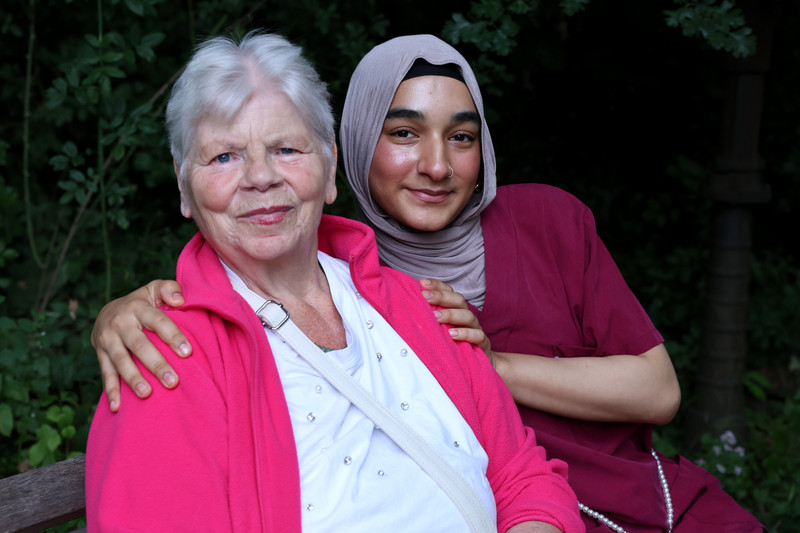New Study: Voluntary Services as a Door Opener for Nursing Ürofessions

A study initiated by SAGST and conducted by the Berlin Institute for Population and Development examines how voluntary services can motivate young people to enter social and care professions - and thus make a decisive contribution to securing a sustainable supply of skilled workers in these areas.
The nursing shortage in Germany repeatedly makes the headlines. In the face of demographic change and far too few skilled nursing staff, the gap between demand and support is widening from year to year. But how can we get more people interested in the nursing profession? A new study by the Berlin Institute for Population and Development shows: Voluntary services can be a valuable door opener here. Programs such as the Voluntary Social Year or the Federal Voluntary Service bring tens of thousands of predominantly young people into contact with social and care professions every year. Many of them subsequently decide to train or study in this field.
In order to systematically investigate this potential, the research team used a multi-stage methodological approach: following a comprehensive literature and data analysis, qualitative interviews were conducted with volunteers, managers of various volunteer positions and sponsoring organizations. The focus was on personal experiences, structural conditions and the question of which framework conditions promote the transition to training or studies.
The results speak for themselves: former volunteers report growing personal maturity, make more informed decisions about a social profession and feel better prepared for it. The institutions confirm this finding: volunteers often become committed professionals who are less likely to drop out of training and remain in the profession in the long term. A key success factor here is good supervision, combined with sufficient time to build relationships with residents and colleagues. However, other prerequisites must also be met: Voluntary services are not a panacea for acute staff shortages. If work processes are too rigid, shift schedules are hardly compatible with private life and pay is low, even motivated volunteers are unlikely to consider entering a care profession on a permanent basis.
Project manager Konrad Lampart sees the study as an important signal: "Voluntary services pave the way into social and care professions and at the same time promote the personal development of the participants," he emphasizes. "Direct contact with people in need of help trains empathy and social skills - qualities that have an impact far beyond everyday working life. Regardless of which career path they choose, volunteers make a valuable contribution to society."
